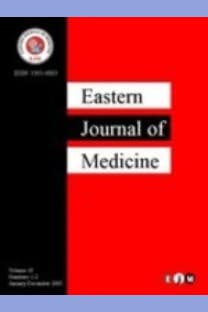Pathogenesis & Laboratory approach to Thrombophilia
Pathogenesis & Laboratory approach to Thrombophilia
Abstract. Thrombophilia is a term used for any hypercoagulable state, either inherited or acquired. The former is considered after excluding acquired predisposing causes like trauma, immobility, Dirseminated inta vascular cuagulation, pregnancy and anitphospholipid syndrome etc. It frequently results from interplay of genetic and acquired factors. An individual’s risk for DVT would be determined by the combination of his or her baseline propensity for thrombosis and the magnitude of the acute insult. Inherited hypercoagulable states may be secondary to deficiency of natural clotting inhibitors or elevated procoagulants or increased fibrinolytic factors . Amongst these, activated protein C resistance, is the commonest underlying cause .Testing for thrombophilia is best performed in stages. Highest-yield assays (screening tests) should be performed first and, if positive, should be followed by appropriate confirmatory tests. Cornerstone of initial treatment is heparin, either unfractionated or low molecular weight, followed by oral anticoagulation.Key words: Thrombophillia, ınherited
Keywords:
Thrombophillia, ınherited,
___
- Dati F, Hafner G, Erbes H, Prellwitz W, Kraus M, Niemann F, Naoh M, Wagner C. Pro CR Global : the first functional screening assay for the complete protein C pathway. Clin Chem 1997; 43: 1719-23.
- Kenneth A. Bauer, Hypercoagulable states; Homatology Basic Principles and Practice, 3rd edition 2001: 2009-2039.
- Martinelli I, Mannucci PM, De Stefano V, et al. Different sisks of thrombosis in four coagulation defects associated with inherited thrombophilia: a study of 150 families. Blood 1998; 92: 2353-2358.
- Sie P, Boneu B. Bierme R, et al. Arterial thrombosis and protein S deficiency of protein S. Blood 1995; 85: 3518-3523.
- Rosendaal FR, Koster T, Vandenbroucke JP et al. Reitsma PH. Hith risk of thrombosis in patients homozygous for factor V Leiden (activated protein C resistance). Blood 1995; 85:1504-1508.
- Gerhardt A, Scharf RE, Beckmann MW, et al. Prothrombin and factor V mutations in women with history of thrombosis during pregnancy and puerperium. N Engl J Med 2000; 342: 374-380.
- Rosendaal FR, Siscovick DS, Schwartz SM, et al. Factor V Leiden (resistance to activated protein C) increases the risk of myocardial infarction in young women. Blood 1997; 89: 2817-2821.
- Kandice Kottke- Merchant, Alexander Duncan. Antithrombin deficiency: Issues in Laboratory Diagnosis. Arch Pathol Lab Med 2002; 126: 13261- 336.
- ISSN: 1301-0883
- Başlangıç: 1996
- Yayıncı: ERBİL KARAMAN
Sayıdaki Diğer Makaleler
An update on new anticoagulant drugs
Jawed FAREED, Rakesh WAHİ, Debra A. HOPPENSTEADT
Diagnostic strategy in heparin induced thrombocytopenia
Meganathan KANNAN, Sarfraz AHMAD, Jawed FAREED, Renu SAXENA
Role of endothelial nitric oxide synthase gene in vascular diseases
M.s. AKHTER, Arijit BİSWAS, Renu SAXENA
Medical management of deep vein thrombosis
Manoranjan MAHAPATRA, Pravas MİSHRA, Tulika SETH, Renu SAXENA
Thrombosis in neonates and children
Venacaval filter in venous thromboembolic disease
